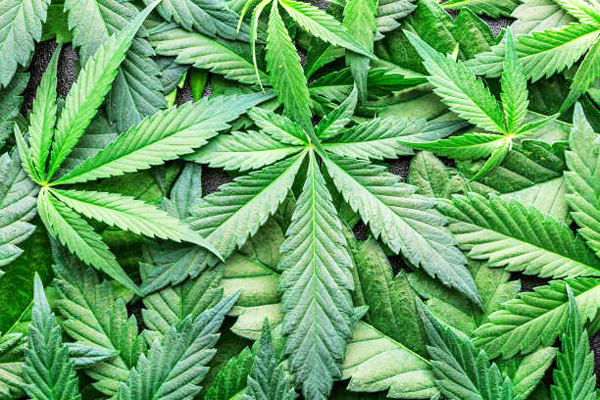House gives final nod to bill legalizing medical marijuana
At A Glance
- The measure seeking to legalize the medical use of marijuana or cannabis was overwhelmingly approved on third and final reading on late Tuesday afternoon, July 30 by the House of Representatives.
 The marijuana plant
The marijuana plant
The measure seeking to legalize the medical use of marijuana or cannabis was overwhelmingly approved on third and final reading on late Tuesday afternoon, July 30 by the House of Representatives.
Gaining final approval on the strength of 177 "yes" votes was House Bill (HB) No.10439. also known as the “Access to Medical Cannabis Act”.
Deputy Speaker Isabela 1st district Rep. Tonypet Albano, the presiding officer during Tuesday's plenary session, said nine House members voted "no", while another nine abstained during nominal voting on the measure.
The bill states that prohibitions provided under Republic Act (RA) No.9165 or the “Comprehensive Dangerous Drugs Act of 2002”, as amended, and other related laws shall not extend to medical cannabis intended for the treatment and medication of qualified patients with debilitating and non-debilitating medical conditions.
Access to medical cannabis shall be allowed for medical use by qualified patients, subject to the provisions of the proposed Act.
RA No.10439 also seeks to establish the Medical Cannabis Office (MCO) as the primary regulatory body for medical cannabis use.
Medical cannabis refers to concentrates, topicals, tinctures, edibles, cannabis products such as capsules and oil, including hemp, flower and any other product in their appropriate finished form, and any other derivative in their pharmaceutical formulation which shall have detailed and accurate information regarding the concentration of tetrahydrocannabinol (THC) and cannabidiol (CBD) certified by the MCO to qualified patients for medical purpose.
THC and CBD are the active ingredients derived from the marijuana plant.
"Debilitating medical conditions" under the bill refer to any disease that produces one or more of the following: cachexia or wasting syndrome; severe and chronic pain; severe nausea; seizures, or severe and persistent muscle spasms.
These include the following diseases: 1) cancer; 2) glaucoma; 3) multiple sclerosis; 4) damage to the nervous system of the spinal cord, with objective neurological indication of intractable spasticity; 5) epilepsy; 6) positive status for human immunodeficiency virus or acquired immune deficiency syndrome; 7) post-traumatic stress disorder; 8) rheumatoid arthritis or similar chronic autoimmune inflammatory disorders; 9) diseases requiring admission into hospice care; and 10) any other condition that is subsequently identified and allowed by the Department of Health (DOH) through the MCO.
Meanwhile, the bill defines "non-debilitating medical condition" as that which encompasses a range of medical issues that, although not severe or disabling, can still impact an individual’s well-being and quality of life. These conditions may include common symptoms, mild disorders, or chronic issues that do not necessarily prevent individuals from carrying out daily activities but can cause discomfort or distress.
The bill prohibits the following acts: a) importation, cultivation, manufacture, storage and distribution of medical cannabis, its products, or derivative without permit from the MCO; b) selling of or trading with medical cannabis to patients, doctors, drugstores, hospitals, clinics, dispensaries and other medical facilities without authority, license or accreditation from the MCO; c) Planting and growing for research and development without authority from the MCO; d) Prescription and administration of medical cannabis by non-accredited physician; e) Prescription and administration of medical cannabis for more than one (1) year by accredited physician; f) Use of medical cannabis without prescription or use beyond the prescribed dosage; and g) other analogous acts performed without authority by the MCO.
"Any person who commits any prohibited act under the preceding section shall, upon conviction and final judgment, be punished with a fine ranging from Five hundred thousand pesos (Php500,000.00), to One million pesos (Php1,000,000.00) or imprisonment ranging from six (6) months to six (6) years at the discretion of the court. The said penalties carry with it the suspension or revocation of professional license or accreditation of the facilities," HB No.10439 read.